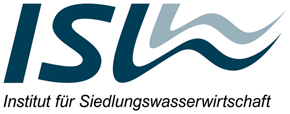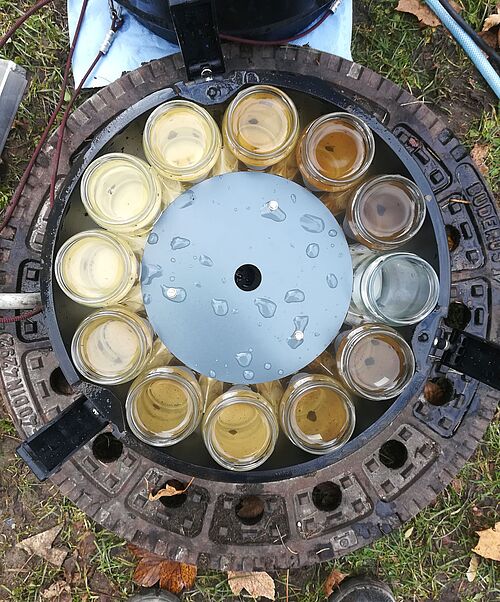

Project Funding: MUNV - NRW
Funding Reference: 17- 04.02.01 - 38/202
Project Duration: 05/2023 - 08/2025
Project Manager:
Dr.-Ing. Katrin Bauerfeld
Scientific Project Work:
M.Sc. Sören Hornig

Project Management: Dr.-Ing. Katrin Bauerfeld
Scientific Project Work: M.Sc. Sören Hornig

Emissions via combined and stormwater discharges are considered to be a major source of nutrients as well as particulate and dissolved micropollutants entering the aquatic environment via sewer runoff. In particular, runoff from traffic areas, which can be contaminated with microplastics (tire abrasion), is the focus of current research interests. As a central result of the investigations in the BMBF funding measure “Plastics in the environment”, these inputs could be estimated as particularly relevant, but have not yet been comprehensively quantified.
The project applied for is therefore intended to answer the question for North Rhine-Westphalia (NRW) as to which precipitation runoff qualities in general and which microplastic loads actually result from wastewater discharges in the separate and combined system and where the postulated tire abrasion loads and other microplastic fractions remain in the sewer system. In addition, a fractionation of the solid inputs (AFS/AFS63), which is addressed in current technical regulations for stormwater management issues, is to be carried out. The aim of the project is to develop a higher-level pollution load balance for wastewater flows in NRW, which will also incorporate results from other projects with related issues.
In detail, the planned ReMiPla project aims to provide reliable data for the quantification of material loads, including microplastic inputs in NRW, by means of indicative precipitation runoff sampling at separate and combined sewer systems. To this end, existing facilities for the separation of solids in the combined and separated sewer system will be examined as examples and practical optimization options will be developed. This includes, for example, central systems such as stormwater overflows, stormwater overflow basins, relieved storage sewers, stormwater retention basins and retention soil filters as well as combinations of these, but also newer approaches such as decentralized filter chambers and systems. A selection is to be made here as part of the project work. The investigations will take place in the catchment area of the Emscher-Lippe Association and will primarily be carried out by Lippe Wassertechnik GmbH.
These on-site investigations are supplemented by comparative studies carried out by the Institute of Sanitary and Environmental Engineering at Braunschweig Technical University in cooperation with Stadtentwässerung Braunschweig GmbH in Braunschweig. A retention soil filter (RSF) planned for research purposes and integrated into the public rainwater retention system is available here, which can be used for at least 12 months to record the rainwater quality in the inlet and outlet of the RSF with a detailed survey of the pollution dynamics. This allows further results to be obtained with regard to pollution load reduction for a treatment and retention system that has already been monitored in the previous research project (BMBF joint project TransMit) and is also relevant for the potential for reducing microplastic inputs in NRW.
The overall objective is to summarize the potential of the various technical facilities for reducing pollution load and, in particular, microplastic input, to develop concrete options for operator activities, for engineering offices and equipment suppliers, and to spread the research results among the wastewater community.
Vacancies of TU Braunschweig
Career Service' Job Exchange
Merchandising
Term Dates
Courses
Degree Programmes
Information for Freshman
TUCard
Technische Universität Braunschweig
Universitätsplatz 2
38106 Braunschweig
P. O. Box: 38092 Braunschweig
GERMANY
Phone: +49 (0) 531 391-0
